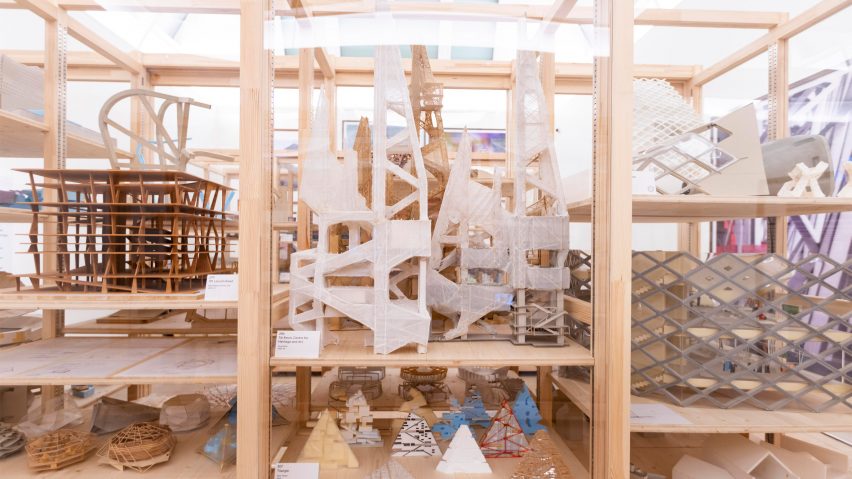
Royal Academy's 2023 annual architecture lecture spotlights healthcare, governance and curiosity
Promotion: for the Royal Academy of Arts' annual architecture lecture, Herzog & de Meuron discussed a building dedicated to US sculptor Alexander Calders' artwork and its urban plan for Natal, Brazil.
Taking place at the Royal Academy's Benjamin West Lecture Theatre, partners Jacques Herzog and Pierre de Meuron and senior partner Christine Binswanger spoke about Herzog & de Meuron architecture projects.
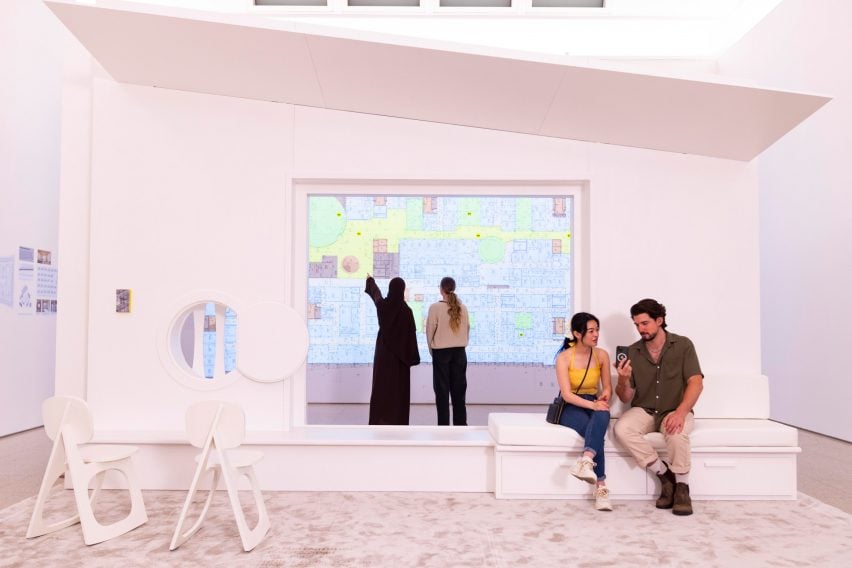
The speakers focused on different themes – De Meuron spoke on the topic of governance, while Binswanger focused on care and Herzog on curiosity.
Drawing on research undertaken from the architect's studio in Basal, De Meuron discussed society, governance and resources, using a range of Herzog & de Meuron projects as case study examples, including the urban plan for the Mãe Luíza neighbourhood in Natal, Brazil.
As part of the urban plan, the studio is adding a "perpendicular spine" with community workshops, retail space, an amphitheatre, the Arena de Morro gymnasium and a "green street" that connects the neighbourhood with a dune landscape and seafront.
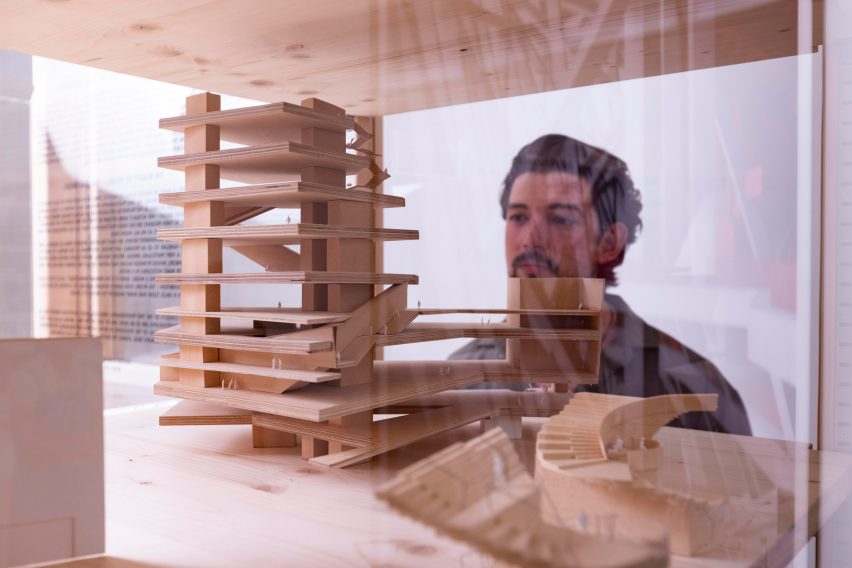
Binswanger followed De Meuron with the topic of care, discussing designing for healthcare.
"I'm speaking about architecture for care, but at the same time, I'm speaking about the care for architecture, which is true for any architecture in an ideal world," said Binswanger. "Building for the healthcare system has, in the last decades, been left largely to the specialists, who were guided towards hyper functionality."
"Yes, every hospital needs to work, and the complexities of the functions in a hospital are huge, but it was forgotten that we're also building for people," she continued.
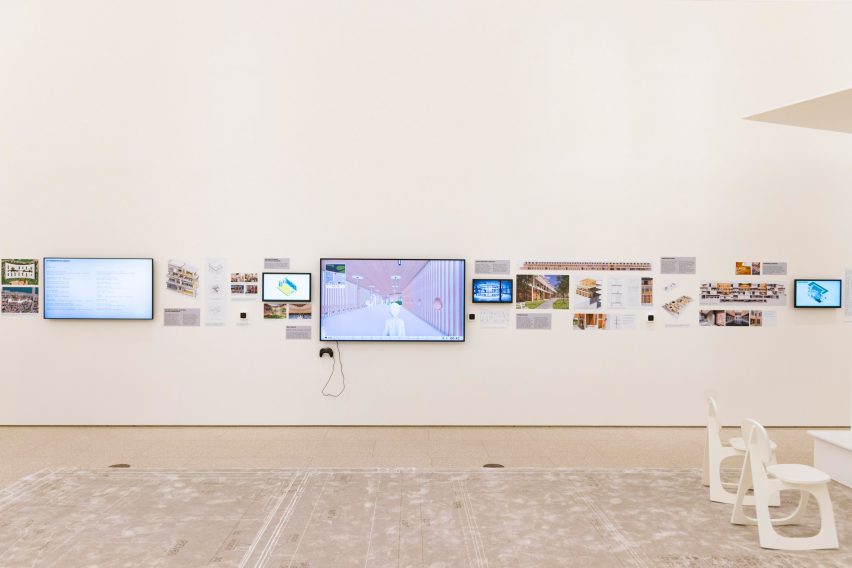
Binswanger also discussed key design principles that were discovered when designing the project Rehab Basel, which the studio now applies to other hospital projects.
One example is designing space for privacy while providing open communal space for socialising.
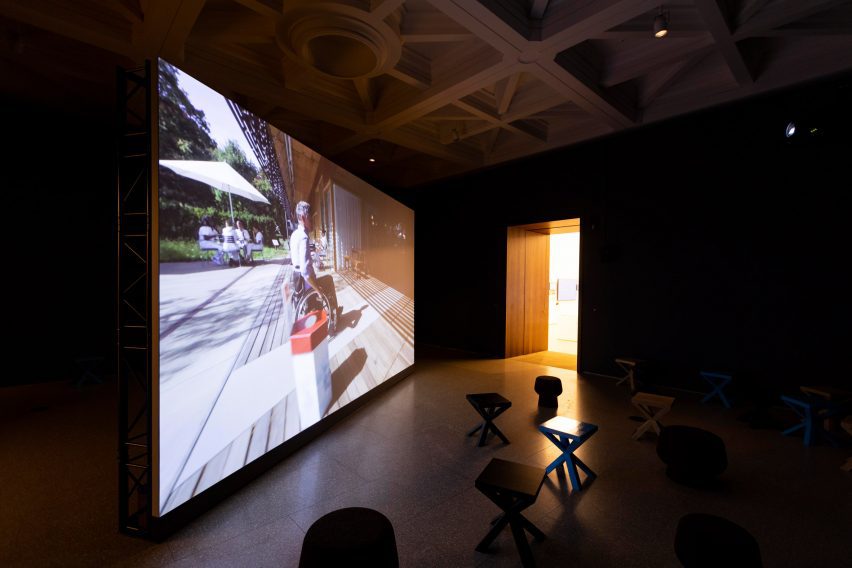
"It was clear the belief of the doctors and the staff at Rehab was that a patient learns if they can see another working on recovery," said Binswanger.
"Community building means you create spaces where people can go, that people can discover, where they can have a conversation with a family member or where they can go and read a book when they want to be outside of the room."
"This is not large spaces or programmed to add dedicated areas, but it's this fluid space in the middle of the plan that then reaches out into departments, where you can appropriate space for you with your specific needs," Binswanger continued.
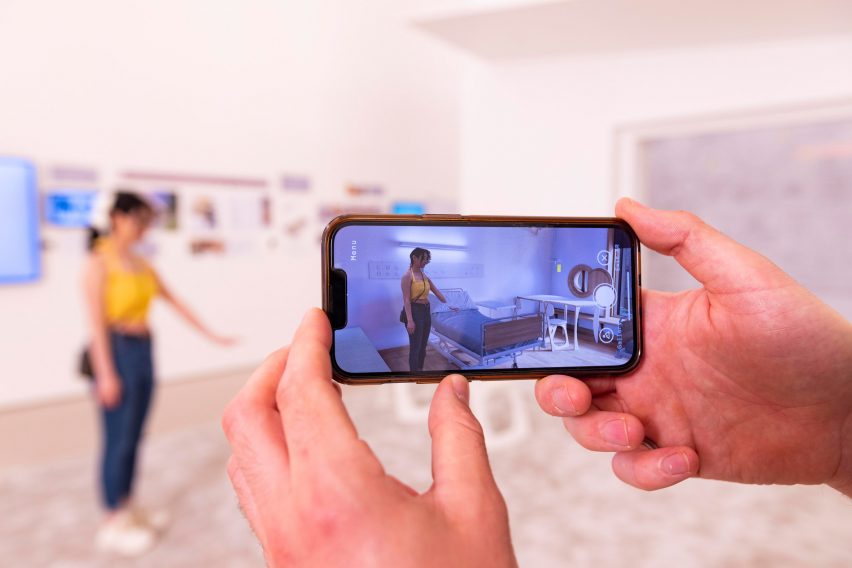
Herzog followed Binswanger with the topic of curiosity and spoke about the Calder Gardens, a landscape and culture building for Alexander Calder's artworks.
"This whole project is a lot about giving every single architectural element an identity," said Herzog. "If it doesn't have an identity, then it would fall apart – and it did often fall apart."
The studio played with geometry to create a design for the gallery – a process similar to what it designed for the 2012 Serpentine Pavilion, which had a geometric shape informed by the foundations of previous pavilions.
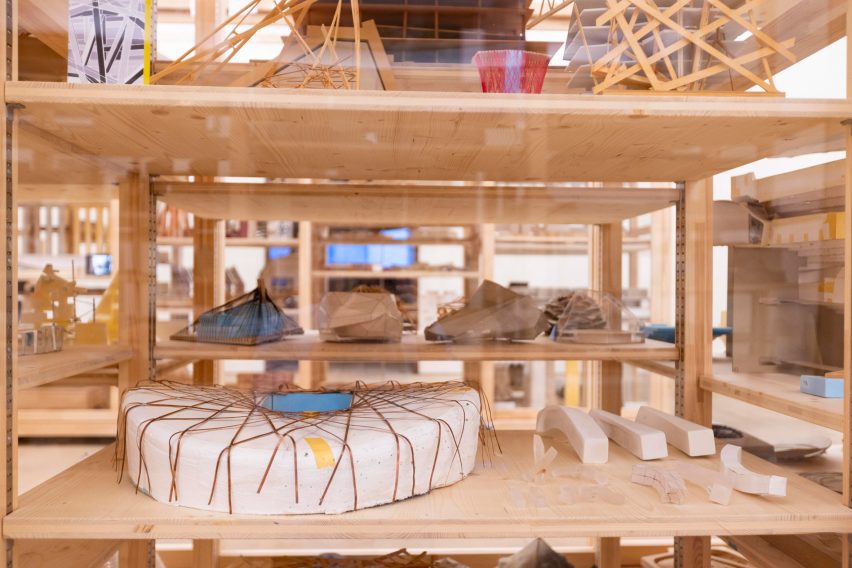
The lecture coincided with the Herzog & de Meuron exhibition hosted by the Royal Academy, which is open until 15 October 2023.
It showcases some of the studio's work from the last 40 years and includes over 400 works, including models, prototypes, drawings and photographs from Herzog & de Meuron's archives.
To view more about the exhibition, visit the Royal Academy of Art's website.
The Herzog & de Meuron exhibition takes place from 14 July to 15 October 2023 at the Royal Academy of Arts in London. See Dezeen Events Guide for an up-to-date list of architecture and design events taking place around the world.
Partnership content
This article was written by Dezeen for the Royal Academy of Arts as part of a partnership. Find out more about Dezeen partnership content here.